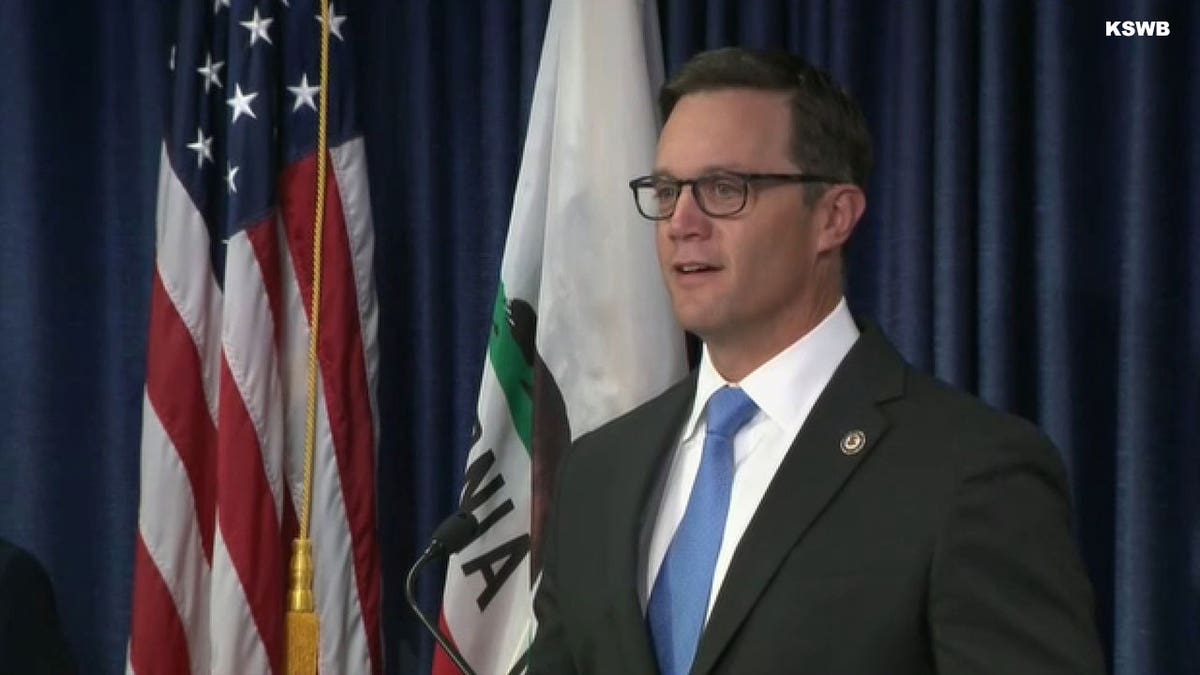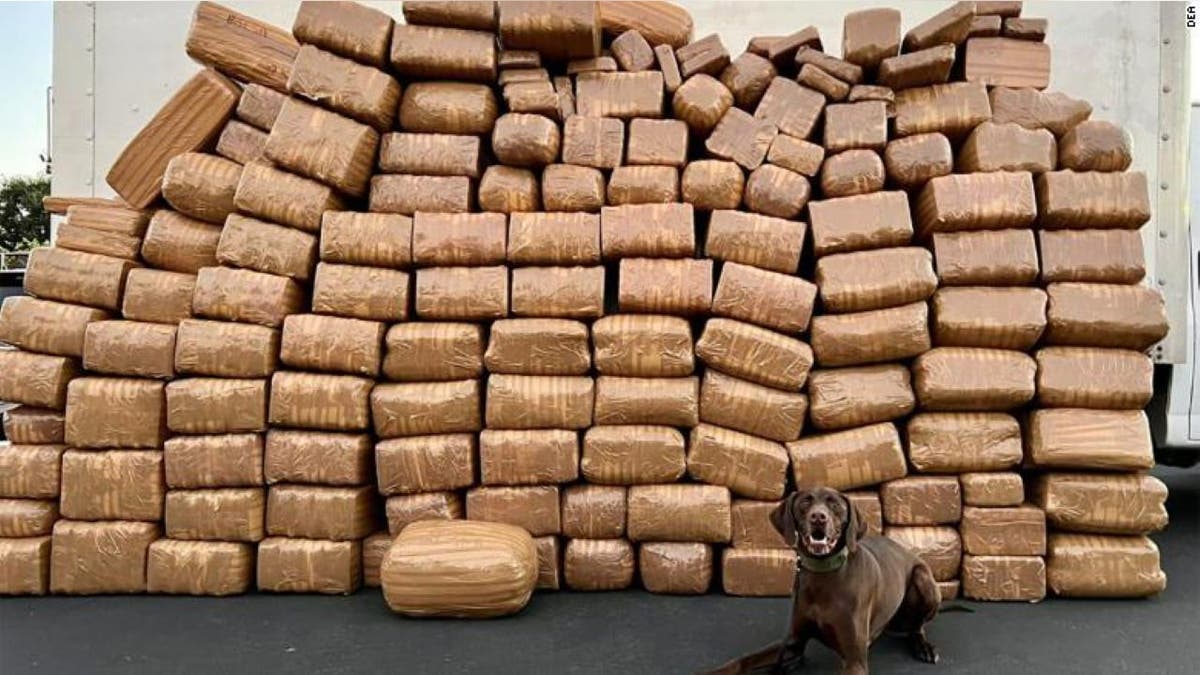‘Scourge’ of fentanyl trafficking exacerbated by cartel use of border, US attorney says as Title 42 end looms
U.S. Attorney Randy Grossman told Fox News Digital that as the end of Title 42 looms, his office is keeping its focus on prosecuting drug traffickers and cartel-linked illicit drug dealers, while bolstering prevention campaigns.
EXCLUSIVE: U.S. Attorney for the Southern District of California Randy Grossman told Fox News Digital that as the end of the Title 42 immigration policy draws near, his office is keeping its focus on prosecuting drug traffickers and cartel-linked illicit drug dealers, while bolstering prevention campaigns to warn the community about the dangers of fentanyl.
The Title 42 policy was instituted during the Trump administration at the beginning of the COVID-19 pandemic and has been used since to expel a majority of migrants at the southern border for public health purposes. The Supreme Court on Monday temporarily blocked an order that would lift the policy this week, but it is still anticipated to end, which many fear will unleash a new wave of migration and illegal drugs into the U.S.
"We're going to continue to employ the strategy that we've been employing, which is aggressive prosecutions and prevention," Grossman said when asked about the possible end of the policy during a Tuesday interview with Fox News Digital. "We are very focused on making sure that we deter crimes at the border, including the scourge of fentanyl trafficking that's killing our residents, as well as preventing deaths in our community by getting into the community through an abundance of outreach programs in partnership with our law enforcement agency partners."
The U.S. attorney's office regularly works with the Border Patrol, Customs and Border Protection, Homeland Security Investigations, as well as state and local law enforcement partners, said Grossman, who explained that they are "prepared" to deal with issues at the border due to their working partnerships.
BORDER PATROL UNION PRESIDENT SAYS AGENTS FEEL ‘COMPLETELY DEFEATED’ AHEAD OF TITLE 42'S END

U.S. Attorney for the Southern District of California Randy Grossman. (KSWB )
"What we're seeing at the border is just a lot of it. We're seeing of large loads of fentanyl and not only in powder and pills, but we're seeing mixed loads of fentanyl with methamphetamine powder and pills," Grossman said.
"And it's its on a daily basis… that those drugs are being seized at the border, both in cars, in various panels, hidden compartments in cars, but also on body carriers, people that are being recruited at the border to bring it over with several sometimes kilos of fentanyl concealed on their person," he said. "We've seen rainbow fentanyl in the last year."
Grossman, who leads his office in the border city of San Diego, said there is "no place" a cartel would forego in order to make a profit, but said the U.S. attorney's office is working to "match" their creativity.
"I can assure you that we are matching their creativity with all the resolve and all the dedication that we can possibly muster… I just could not be more proud of the law enforcement effort in San Diego County and Imperial County and the resources that they are bringing to bear to match every effort of the cartel in this and this in this battle against fentanyl," he said.
He explained that the federal government has "unique tools" in order to bring traffickers to justice and secure large amounts of time behind bars for dealers, not just a "slap on the wrist" that is provided by the state. Grossman said prosecutions of crimes involving fentanyl have gone up 800% over the last five years, and the Southern District of California office has had success in getting lengthy sentences for street-level drug dealers.

More than 5,000 pounds of methamphetamine were discovered inside cardboard boxes in National City, according to the U.S. Attorney’s Office. (U.S. Attorney’s Office)
"And we have unique tools under federal law to prosecute street level dealers who are responsible for those deaths and to fill a gap where the state law, just unfortunately right now in California, provides a slap on the wrist. Federal law brings a mandatory minimum sentence of of of 20 years in federal prison," he said. "And we've been really focused on bringing those cases, as well as targeting the cartels who are looking to take advantage of any development that they possibly can."
He said that due to state laws, the amount of time for a street-level dealer is "very low" compared to the federal laws in place.
"This is a good example of where the federal government can lead and can help with keep our country safe and content can help protect the public by bringing to bear a federal statute where the penalties for that same conduct are relatively light on the state side," Grossman said.
The U.S. attorney's office created posters, located at the San Ysidro point of entry from Mexico, clearly stating that anyone who sells fentanyl that kills in the U.S. will face a 20-year mandatory minimum sentence in prison.

Rainbow fentanyl is another way cartels are smuggling in the drugs. (U.S. State Department )
Powder fentanyl is also emerging as a drug of choice for some addicts in San Diego, which is posing a threat to the immediate community, but also the nation as the drug becomes more widespread.
Assistant United States Attorney and Criminal Division Opioid Coordinator Adam Gordon told Fox News Digital that San Diego County has seen a "significant shift" in powder to pill fatality ratio over the last four to five years. He says currently the county has a four to one powder to pill ratio.
"So what we see is that individuals are actually choosing fentanyl as their drug of choice and then smoking, most traditionally smoking it, and then going up to say from one gram a day up to three or four grams a day. So this is really driving our death rate in San Diego County," said Gordon.
He called it "surprising" at the number of people whose drug of choice is now fentanyl, which is driving up deaths.
CLICK HERE TO GET THE FOX NEWS APP
"That's the drug of choice that they're seeking. So that in combination with the wide availability of powdered fentanyl is something that's really driving our deaths. And it takes an entire community, community stakeholders. These individuals have substance use disorder, a lot of times dual diagnosis, they're unsheltered. It's a very difficult problem and it takes everybody onboard," Gordon said.
Prevention is key to stopping the opioid crisis, Grossman told Fox News Digital.
"We have to educate our teachers. We have to institute to educate friends and family, to let people know really how deadly this this this drug is," he said.
"It's both an aggressive prosecution strategy and also an equally aggressive education and prevention strategy," Grossman explained.






